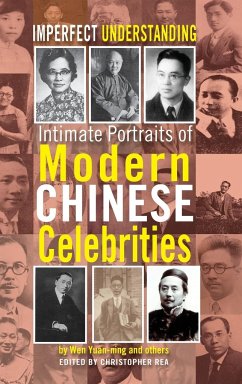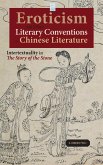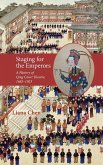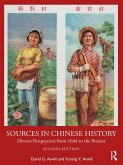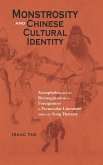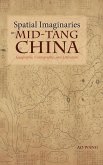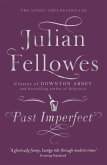What did it mean to be a celebrity in 1930s China? Who were Republican China's preeminent intellectuals, writers, artists, politicians, diplomats, and businesspeople, and how were they represented in the popular press? During the heady days of Anglophone publishing in 1930s China, Wen Yuan-ning edited for the Critic a series of "Unedited Biographies" (later "Intimate Portraits") of famous contemporary Chinese personages. Wen and his collaborators-some of whom wrote anonymously-offered readers mischievous and idiosyncratic accounts of the careers and personalities of the people in the news. These idiosyncratic celebrity sketches proved both controversial and popular, with several of them immediately being translated into Chinese. A selection of seventeen of Wen's own contributions to the Critic series was published to acclaim in 1935 as the book Imperfect Understanding. Yet Wen and his contributions to Chinese literary culture disappeared from the historical record after the founding of the People's Republic, likely because Wen wrote in English and had close ties to the Chinese Nationalist Party. The fifty essays (and one reader rebuttal) that originally appeared in the Critic in 1934, recently rediscovered, appear in this book accompanied by a comprehensive introduction to Wen Yuan-ning and his participation in Republican China's thriving Anglophone literary scene. This anthology brings together fifty rediscovered essays, written in English in 1934, which offer fascinating, close-up profiles of a constellation of celebrities. From the warlord Han Fuju to the Peking Opera star Mei Lanfang to the intellectual leader Hu Shi to the novelist Lao She to ambassador Wellington Koo to the Singaporean Chinese entrepreneur Lim Boon Keng to the deposed Qing Emperor Puyi, the series presents a panorama of Chinese elites. Imperfect Understanding represents an important archival discovery, a literary collection which provides valuable biographical information about major modern Chinese historical figures and represents a unique artifact of the pre-war heyday of Anglophone literary culture in China. Imperfect Understanding: Intimate Portraits of Modern Chinese Celebrities is both an entertaining work of literature, by turns comedic and touching, and an important historical document. Its fifty sketches represent influential Chinese historical figures warts and all, in the eyes of contemporary observers seeking to provide readers an alternative to the autobiographical puffery of popular books like Who's Who in China. Christopher Rea's introduction offers new research on the forgotten literary figure Wen Yuan-ning and argues that one of the essays published under his name was written anonymously by a young man who went on to become one of modern China's literary giants: Qian Zhongshu. This edition of Imperfect Understanding also includes multiple reviews of Wen's book, brief biographies of the subjects of the Critic series, and a bibliography of further writings by and on Wen Yuan-ning. Imperfect Understanding's profiles of fifty Chinese cultural and political celebrities offer valuable insights about modern historical personages, delivered with wit and literary flair.
Hinweis: Dieser Artikel kann nur an eine deutsche Lieferadresse ausgeliefert werden.
Hinweis: Dieser Artikel kann nur an eine deutsche Lieferadresse ausgeliefert werden.

